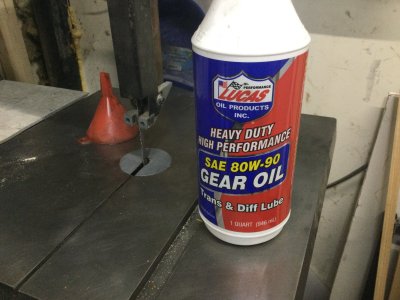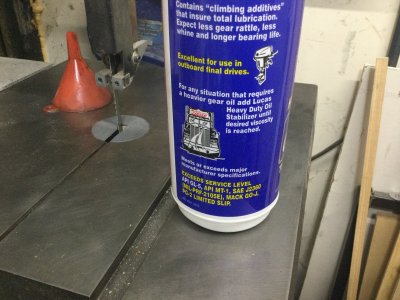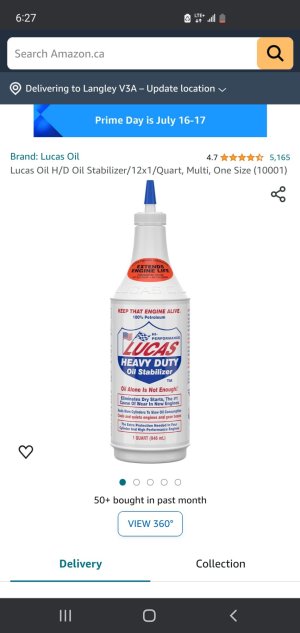Ironman
Ultra Member
The other day I was sawing some box tubing on the bandsaw and things went quiet, so I assumed it had shrugged off the blade again. Shut it down and inspected it and the blade as on the wheels.
After fiddling about with the pulley I determined the gearbox was failing. I unbolted the hydraulic cylinder and removed the cover plate a thick golden oil poured out everywhere. This was a surprise as I expected the typical Chinese Yak Fat they stick into everything. How they got oil into a vertical gear box needs some pondering. After I cleaned up the mess I used my imagination to see where the gear teeth were on the worm gear. I'm guessing it is bronze
This is a King product KC-129DS and I was surprised to see a service center less than 100 km away in Camrose. If it is a bronze gear and the Yak fat is incompatable, that would explain the faiulure.
After fiddling about with the pulley I determined the gearbox was failing. I unbolted the hydraulic cylinder and removed the cover plate a thick golden oil poured out everywhere. This was a surprise as I expected the typical Chinese Yak Fat they stick into everything. How they got oil into a vertical gear box needs some pondering. After I cleaned up the mess I used my imagination to see where the gear teeth were on the worm gear. I'm guessing it is bronze
This is a King product KC-129DS and I was surprised to see a service center less than 100 km away in Camrose. If it is a bronze gear and the Yak fat is incompatable, that would explain the faiulure.
Last edited:




